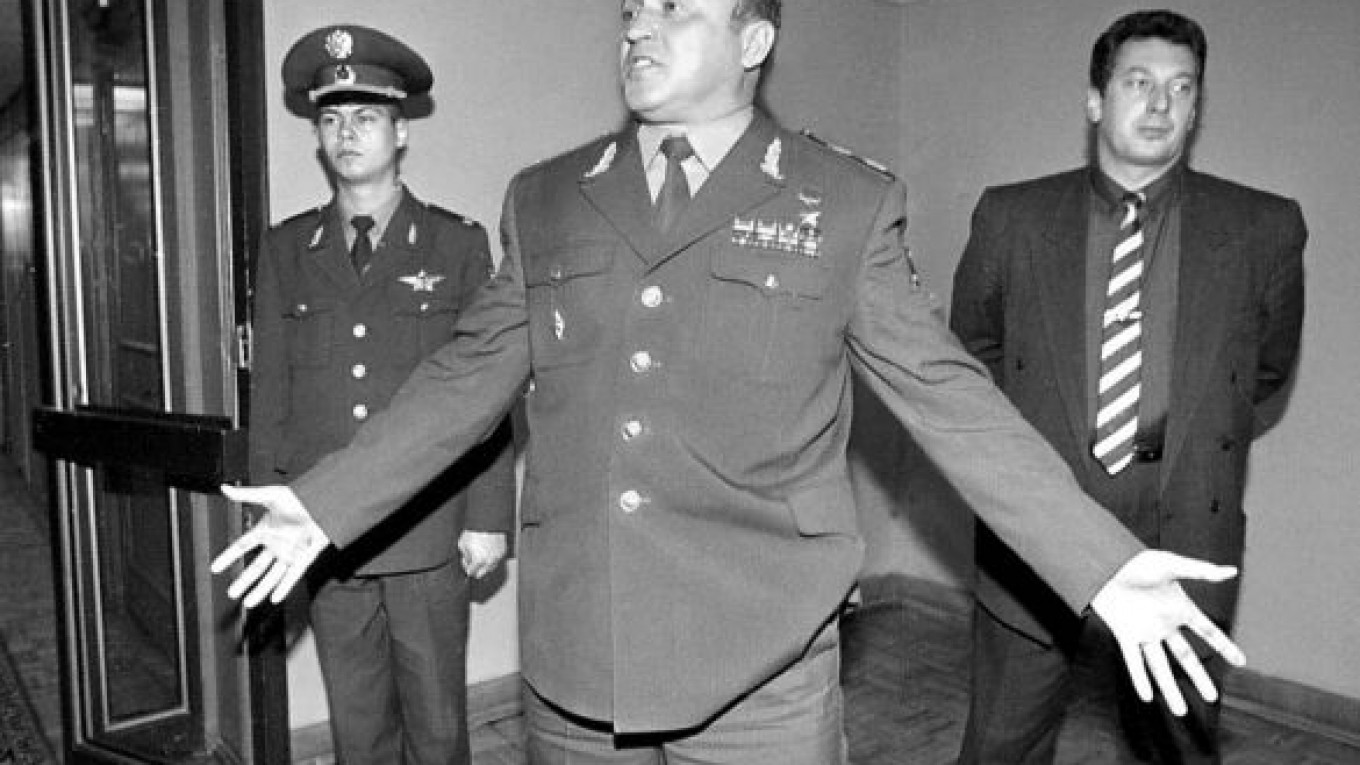Pavel Grachev, a former defense minister who said ahead of the devastating first Chechen war that the rebels could be crushed in a few hours with a single airborne regiment, was laid to rest Tuesday at Moscow’s Novodevichy Cemetery.
Grachev, 64, died Sunday at the Vishnyevsky military hospital outside Moscow, where he had been admitted in serious condition 11 days earlier.
The Defense Ministry said the cause of death was acute meningoencephalitis, an inflammation of the meninges and brain that can be caused by anything from food poisoning to a tick bite, and did not provide further information.
Media have speculated that Grachev ate poisonous mushrooms at a birthday party, while one of his sons told reporters that his father had suffered from high blood sugar.
Grachev’s widow and two sons were joined at Tuesday’s funeral by top military brass, including Defense Minister Anatoly Serdyukov and Nikolai Makarov, chief of the General Staff.
“Pavel Sergeyevich was always distinguished by his dedication and courage,” said Vladimir Isakov, a former deputy defense minister who served with Grachev in the Afghan War, Itar-Tass reported. “He never hid behind the backs of his subordinates, and for this he received the high title of Hero of the Soviet Union. He was a real paratrooper and was proud of the fact that he served in the army.”
Grachev was a commanding officer of elite paratroopers during the Soviet occupation of Afghanistan and received the award for his service there.
Grachev, who had served under the late Boris Yeltsin from 1992 until 1996, is perhaps best-remembered for promising in 1994 to crush Chechen separatist rebels “in a couple of hours with a single regiment of paratroopers.” The war stretched on for two years and ended with the Kremlin forced to sign a peace treaty.
Accusations of corruption connected with Soviet troops’ withdrawal from East Germany, although never proven in court, earned Grachev the nickname Pasha Mercedes. Also, a journalist who had linked Grachev to corruption in the military, Dmitry Kholodov, was killed by an exploding briefcase in 1994, and his newspaper, Moskovsky Komsomolets, pointed the finger at Grachev. Grachev was not charged in connection with the killing.
Yeltsin fired his disgraced defense minister after his 1996 re-election. Yeltsin, who died in 2007, is also buried at Novodevichy Cemetery.
(MT, AP, Reuters)
Related articles:
A Message from The Moscow Times:
Dear readers,
We are facing unprecedented challenges. Russia's Prosecutor General's Office has designated The Moscow Times as an "undesirable" organization, criminalizing our work and putting our staff at risk of prosecution. This follows our earlier unjust labeling as a "foreign agent."
These actions are direct attempts to silence independent journalism in Russia. The authorities claim our work "discredits the decisions of the Russian leadership." We see things differently: we strive to provide accurate, unbiased reporting on Russia.
We, the journalists of The Moscow Times, refuse to be silenced. But to continue our work, we need your help.
Your support, no matter how small, makes a world of difference. If you can, please support us monthly starting from just $2. It's quick to set up, and every contribution makes a significant impact.
By supporting The Moscow Times, you're defending open, independent journalism in the face of repression. Thank you for standing with us.
Remind me later.






